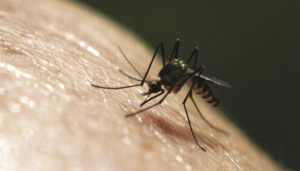
“With the seasons changing, people are spending more time outdoors with their families, friends and pets, increasing their exposure to biting pests such as mosquitoes and ticks,” said Jim Fredericks, Ph.D., chief entomologist and vice president of technical and regulatory affairs for the National Pest Management Association (NPMA). “Mosquitoes and ticks are problematic and are known as vector pests, which means they can carry pathogens and are capable of transmitting infection to humans through their bites. It is important to take preventative measures to protect against these biting pests to reduce the transmission of diseases.”
Blacklegged ticks, also known as deer ticks, can transmit Lyme disease to a person’s bloodstream in as little as 24-36 hours after attaching to a human host, and both the Rocky Mountain wood tick and the American dog tick can transmit Rocky Mountain spotted fever after being attached for only two hours, making thorough tick checks and quick removal crucial in reducing the threat of disease transmission. Additionally, mosquitoes spread West Nile virus, which has been detected in all 48 continental states, Washington D.C. and Puerto Rico, and can also transmit Zika virus, dengue fever and chikungunya to humans.
To help protect families and pets this season, NPMA is sharing the following tips for avoiding contact with mosquitoes and ticks:
- Always apply an insect repellant containing at least 20 percent DEET, picaridin, IR3535 or oil of lemon eucalyptus when spending time outdoors, and reapply as directed on the label.
- Wear long pants, long-sleeved shirts and closed-toe shoes when outdoors. Choose light colored clothing that makes it easier to spot ticks and other insects.
- Reduce the amount of time spent outside during dusk and dawn when certain types of mosquitoes are most active.
- Keep grass cut low, as ticks are found in high grass. Remove weeds, woodpiles and debris.
- Eliminate areas of standing water around the home such as flowerpots, birdbaths, baby pools, grill covers and other objects where water collects. Mosquitoes need only about a half inch of water to breed.
- Inspect yourself and your family members carefully for ticks after being outdoors.Source: NPMA